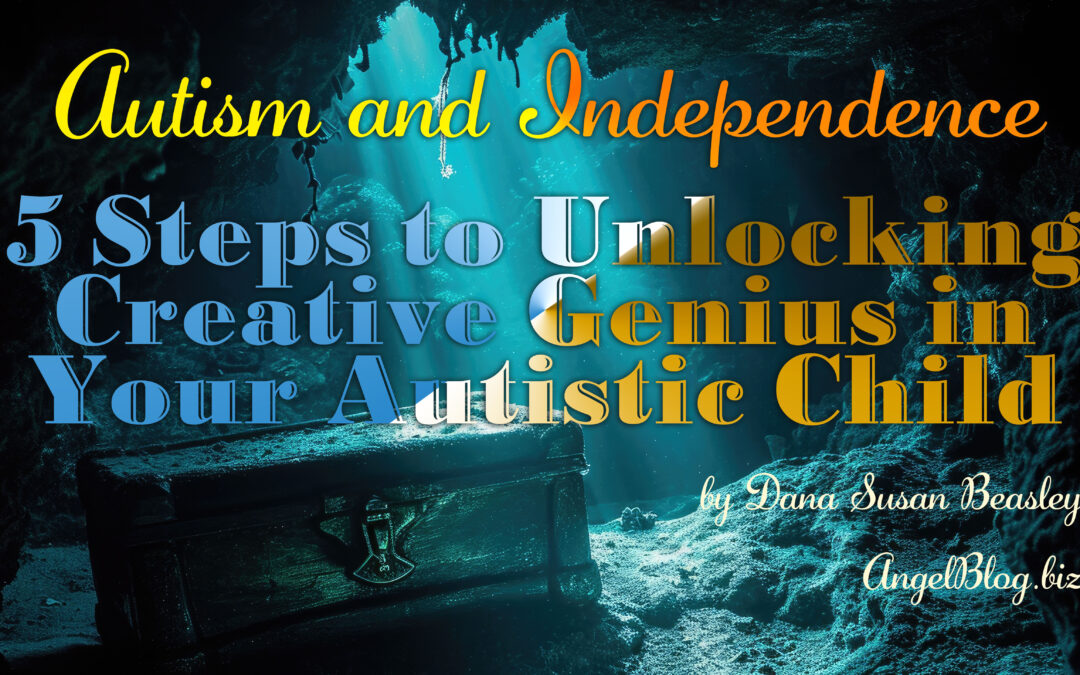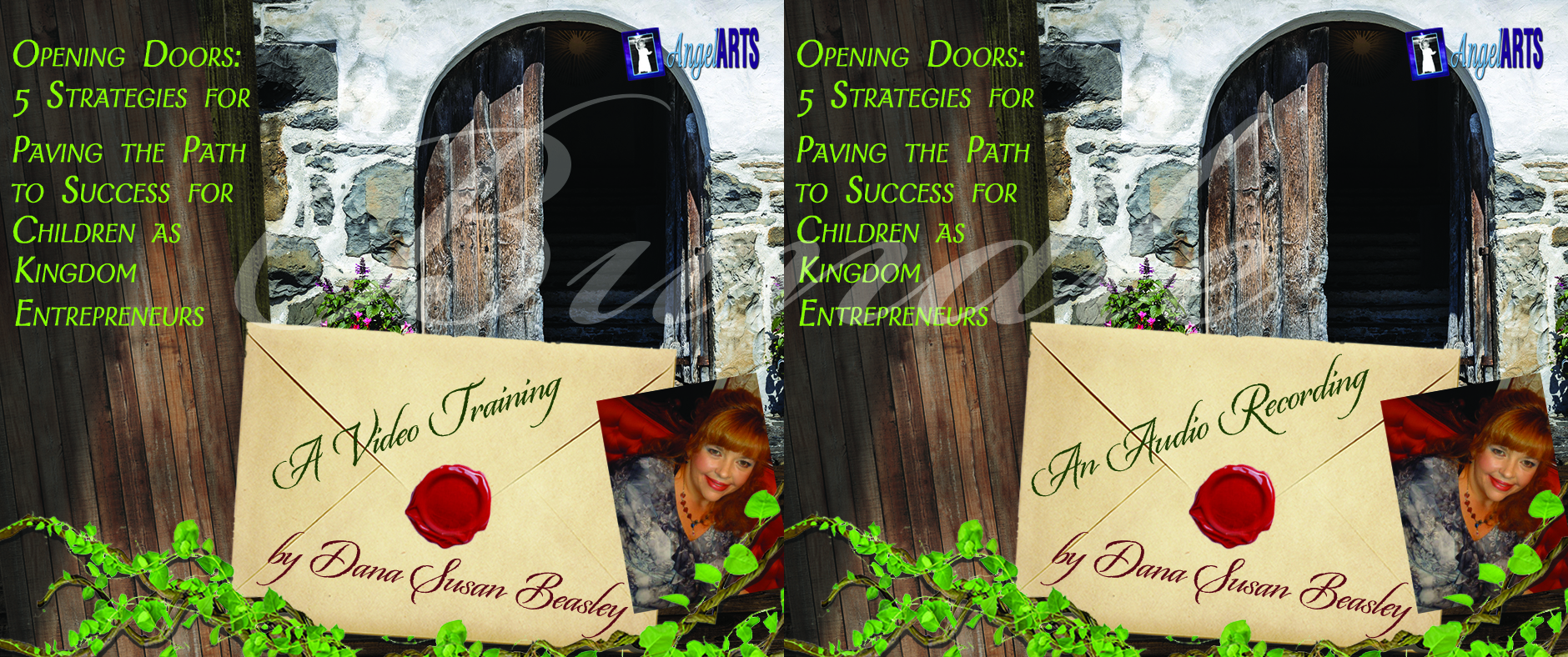Are you confused how Autism and Independence would work for your child? Do you need help getting your child to launch into their lives so they can be happy and fulfilled?
We believe that every child is a hidden gem, waiting to be discovered and polished. Yes, we believe Autism and independence is possible. In this blog post, I present a detailed, 5-step guide to help you unlock the creative genius in your Autistic child. I offer insights into the world of Autism, and share how to create an environment that not only recognizes her unique abilities, but also nurtures her potential. Join us on this enlightening journey, and learn how to best support your loved one in his pursuit of creativity and self-expression.
Creating a warm and welcoming atmosphere is essential to unlocking creativity in your Autistic child whether at home, at work, or at school. It is crucial to fostering Autism and independence. Environment plays a crucial role in unlocking potential in your child as it greatly influences behavior, engagement, and overall well-being. It serves as the foundation for building positive relationships, fostering open communication, and establishing trust among individuals. It has a profound impact on mental health. A comfortable and inviting, loving environment not only brings peace of mind but also helps alleviate stress.
While physical safety is important for creating such an environment, emotional safety is equally vital. Imagine being in a physically secure space but feeling emotionally threatened or unsupported. That’s not a safe environment. Therefore, it’s essential to cultivate an atmosphere that respects your child’s feelings and values her opinions. Encourage an embracing atmosphere where everyone feels connected and like they belong. Remember, creating such an environment starts with showing empathy toward others’ emotions and maintaining transparency in your actions, leading to positive outcomes in all aspects of life. And most definitely one of those positive outcomes is Autism and independence!
Creating a safe environment definitely involves being approachable and empathetic. I think of all the times when I listened to my son—his ideas, his feelings, his disappointments, his hopes… Building a loving home and joyful homeschool was my priority. My favorite times over the years has been the late nights when my son wants to talk about the deeper things of life and before I knew it it would be 2 am in the morning! That’s time well spent!
But there were also difficult conversations where he expressed anger or sadness or disappointment in our circumstances or my decisions. We worked through them. Love was and will always be the foundation.
Believe me, I was not and am not the prefect mother. But I knew that providing him a safe environment was a huge priority in our lives. For Autism and independence.
Step Two: Encouraging Exploratory Play
Encouraging exploratory play is a crucial part of nurturing healthy child development and unlocking creative genius in your child. It’s definitely important for Autism and independence. When they are little, children have the chance to freely explore their surroundings and engage with objects on their own terms. Or they should have that chance! This kind of play sparks curiosity, creativity, cognitive growth, and social skills. When kids are given the freedom to experiment and make their own discoveries through play, they sharpen their problem-solving abilities and learn to think critically about the world.
As parents or caregivers guiding this exploration, it’s important to avoid hovering or directing too much, and instead, let your child explore at his own pace. Offer materials that inspire creativity and exploration, such as building blocks, art supplies, or everyday household items. Create an atmosphere where making mistakes is viewed as a natural part of learning rather than something negative. Remember, not all learning has to follow a structured format; free play allows for self-discovery and can be just as beneficial as organized activities. The key is finding the right balance between safety and independence—give your little explorer enough freedom to explore while ensuring a safe environment. That will result in Autism and independence.
While play is important in a young child, it’s crucial to keep allowing exploration and creativity as your child gets older. This may take different forms, like participating in art or dance classes or going on nature hikes or having time to research a favorite topic. Instilling a joy of learning through play will bring a lifetime of exploration that will result in finding and unlocking hidden talents as they grow into adults. And this will unlock the genius inside! Talk about Autism and independence!
With my son and in our household, play is involved in everything we do. That’s why we started a Live Action Role Playing (LARP) club in 2017. It brought him out of his shell and excessive computer use! Now he is my assistant and he teaches kids sword fighting!
In our case, years ago I noticed that Sam liked medieval skirmish video games. That’s what gave me the idea to start a LARPing club. Then he became extremely interested in cryptozoology. When he asked me to go “bigfooting” with him, I didn’t hesitate though I was scared. It is now our favorite pastime and one that provides great play, exercise, and relational closeness. It’s definitely helped us both find hidden gems inside of us!
Step Three: Identifying Passions and Interests
Step Three of unlocking the creative genius within your Autistic child is all about uncovering her passions and interests. Understanding what brings your child joy, stimulates his curiosity, or captures his attention is key to getting to know your child on a deeper level. For your children to get to know THEMSELVES on a deeper level. Our passions and interests can guide your child’s life choices, influence her career path, hobbies, relationships, and how she spends her free time. For example, if your son loves wildlife conservation or has a fascination with learning new languages, these interests might dictate where he chooses to travel or even inspire him to pursue a career in environmentalism or linguistics.
What it takes is really paying attention to their obsessions and then translating that into a pursuit whether personally or professionally. When I noticed that my son spent a great deal of time creating 3D models on his computer for games, I realized that he could work in 3D modeling building design. So when we got our first extensive project designing a custom duplex, Sam learned on the job. And he created a fantastic drawing! He is now working on a tiny home plan that we will sell online. But we already have a buyer!
I also noticed Sam is artistically gifted like me, so I taught him everything I know about graphic design. So far he has had two paid cover design jobs and he’s done an amazing job on ads, flyers, and logos for me. We’re strategizing on how we can get him more projects so he can start by purchasing his very own car!
Autism and independence is possible!
Helping your children to discover their passions and interests isn’t always straightforward—it often involves trying new things and exploring different avenues until you find what truly excites them. It’s important to remember that passions can evolve over time as they gain new experiences. Don’t hesitate to help your children explore various fields, whether it’s sports, arts, science, technology, or mission work, among others! Engaging in different activities opens the door to new interests that could potentially become lifelong passions. So embrace this step wholeheartedly, enjoy the journey of exploring new territories, and take hold of the potential impact it could have on shaping the future path of your child.
Step Four: Providing the Right Tools for Learning and Exploration
Step Four of the journey of unlocking the creative genius within focuses on equipping your children with the right tools for exploration and discovery, which is essential for fostering effective learning and engagement. These tools come in various forms, including creative learning opportunities, life-giving therapies, and supportive mentors who offer guidance and insights. By providing the right tools, we not only deliver essential information but also ignite curiosity, nurture creativity, and empower our children to apply knowledge in real-world situations.
Since every learner is unique, it’s crucial to offer a diverse range of teaching resources to accommodate different learning styles. For instance, visual learners may prefer video presentations, while others might excel with written materials or hands-on experiments. By providing a variety of resources, you can create a welcoming learning environment where your child can thrive. Additionally, technological advancements have introduced digital tools like educational apps and online platforms, which complement traditional teaching methods. These resources add dynamism to the learning process, enabling independent study and simplifying complex concepts through interactive activities. By offering the right tools, you can enhance both teaching practices and the overall student experience, making learning more engaging and motivating for your child.
I found that my son is an autodidact. That means he is a self learner. Yes, I provided different ways for him to learn when he was a child as well. I always found that hands-on learning was best. Many Autistics are visual learners, but that’s not always the case! I was very surprised to find out that my son was NOT a visual learner but an auditory one!
Whatever the case, remember that you don’t have to teach in a traditional manner. In fact, your child will probably learn better in a different way and that’s fine. Think outside of the box and you will discover that Autism and independence is possible!
Step Five: Recognizing Progress and Celebrating Achievements
Embarking on the journey toward achieving goals such as unlocking hidden gems of talents within your children is often a lengthy and challenging process. That’s why it’s essential to recognize and celebrate the progress you all have made along the way, no matter how small or insignificant it may seem. It’s easy to become so focused on reaching the ultimate destination that we overlook the smaller victories we encounter on our path. However, acknowledging our progress—especially the progress of your children— isn’t just about self-congratulation; it serves as a vital source of motivation and encouragement during difficult times.
Celebrating achievements is about honoring the hard work and determination your children have demonstrated. It’s a way of affirming their effort they’ve invested and the obstacles they’ve overcome. There’s also a psychological component to celebration; when we take the time to acknowledge our successes, our brains release dopamine, often referred to as “the reward chemical.” This boost in happiness levels serves to fuel our motivation and propel us forward with renewed energy toward even greater goals and challenges. Therefore, it’s important to take the time to celebrate every milestone along the journey, regardless of its size or significance, especially when it comes to your children.
I remember when last year I realized that it was my son’s one year anniversary of becoming my apprentice. We happened to be hiking that day and were planning on going out to dinner after our excursion. I made that night into a celebration of his accomplishment. I know he was pleased! It was a special time indeed.
And I myself can relate to this motivation. Just today I secured a paid gig for me to sing in an assisted living facility. This is a dream come true! It’s a small step, and I’m scared, but I feel more alive and I’m more determined than ever to improve my voice so I can do a great job and get more gigs! It works the same way with your child!
Conclusion
In conclusion, unlocking the potential in every child is a mission that should be shared by parents, homeschoolers, Sunday school teachers, educators, and society as a whole. Every child has unique talents, abilities, and interests. It’s crucial that we provide them with an environment that encourages exploration and discovery to nurture their growth. The seeds of potential are already present in them; our role is to provide the fertile soil of education, support, acceptance, love, and guidance for these seeds to sprout and flourish.
Unlocking a child’s potential doesn’t mean pushing them toward achieving unrealistic goals or forcing them into certain career paths; instead, it involves understanding their individuality and promoting self-expression. It means noticing their obsessions and guiding your child to transform that into a marketable skill.
This endeavor requires patience and persistence as each journey will look different from another. Understanding this is fundamental because everyone learns at their own pace in their own unique way which may not necessarily align with traditional expectations or timelines. We must commit ourselves to nurture each child’s strengths while supporting their weaknesses with compassion – only then can we truly help unlock the immense potential residing within every young mind awaiting discovery.
And the fruit of that will be Autism and independence!
Featured photo by:
Explore the hidden depths of a cave and come across a mysterious chest filled with ancient treasure, A lost sunken treasure chest hidden inside a dark …







